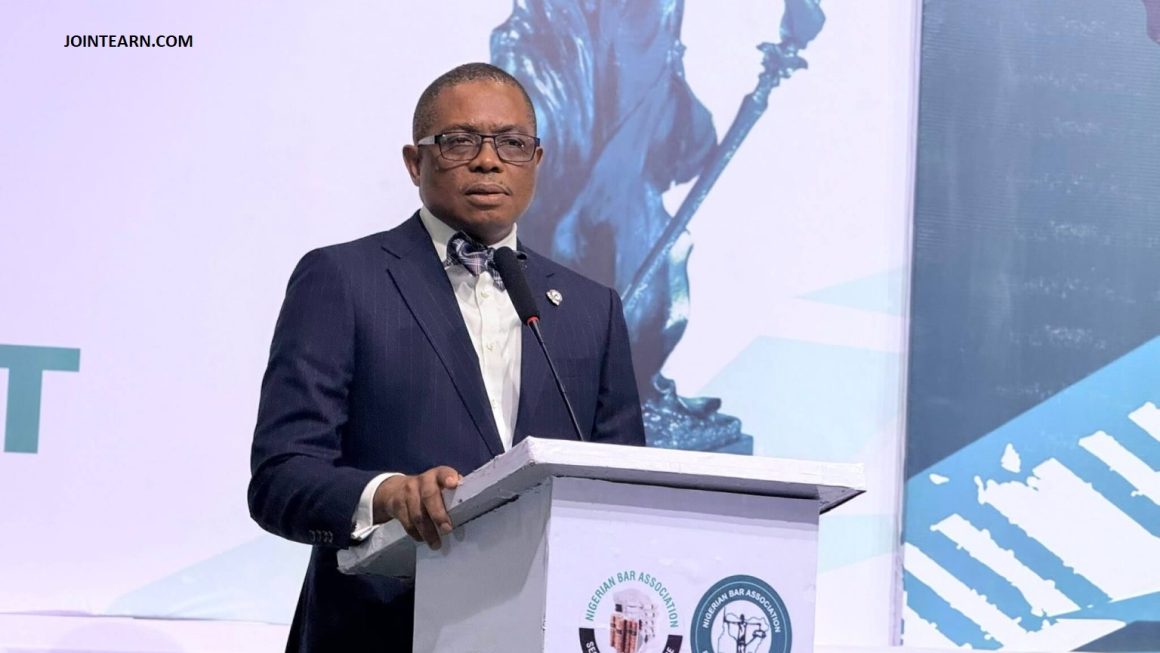In a major development surrounding the growing scandal of the CBEX investment fraud, the Economic and Financial Crimes Commission (EFCC) has announced the tracing of illicit funds linked to the scheme to multiple foreign countries. However, despite the breakthroughs in the ongoing investigation, the Commission has issued a sobering warning: full recovery of the stolen assets may be unlikely due to the complexities of international financial networks and legal jurisdictions.
The CBEX investment platform, which gained traction among Nigerian investors in late 2023 and early 2024, had promised high returns through cryptocurrency and forex trading. Marketed as a legitimate digital investment outfit, CBEX lured thousands of Nigerians with promises of daily profits and secure investments. However, by early 2025, the platform had gone dark, and reports of unpaid investors began to surface nationwide.
After mounting complaints and petitions by defrauded individuals and investment groups, the EFCC launched a full-scale investigation into CBEX’s operations. Initial findings revealed what investigators described as one of the most sophisticated Ponzi-style frauds in recent Nigerian history, estimated to have siphoned over ₦120 billion from unsuspecting investors.
Funds Traced Across Continents
According to a senior EFCC official who spoke under anonymity due to the sensitivity of the case, the Commission has successfully traced portions of the stolen funds to accounts in the United Arab Emirates (UAE), United Kingdom, South Africa, Singapore, and several Caribbean offshore havens. The official stated that the funds were laundered through a web of shell companies and digital wallets, complicating the efforts to pinpoint ultimate beneficiaries and secure asset freezes.
“The perpetrators were very calculated and deliberate. This was not a spur-of-the-moment fraud. They had well-structured channels for laundering the money and dispersing it internationally almost immediately after collection,” the EFCC source disclosed.
Investigators believe that CBEX executives collaborated with a network of international accomplices to funnel investor deposits through cryptocurrency exchanges and non-regulated digital financial services. These funds were then dispersed into layered accounts, with some reportedly used to purchase luxury real estate, vehicles, and business assets abroad.
EFCC Admits Recovery Challenges
In a public statement issued by EFCC Spokesperson Dele Oyewale on Wednesday, the Commission acknowledged the difficulty of asset recovery in transnational fraud cases.
“While the Commission has made significant progress in tracking the movement of illicit funds associated with the CBEX fraud, we must be transparent with the Nigerian public — the full recovery of stolen assets is not guaranteed,” the statement read.
Oyewale emphasized that legal cooperation from foreign governments is crucial in repatriating the funds but acknowledged that bureaucratic hurdles, privacy laws, and differing regulatory standards have already slowed down efforts.
“In some jurisdictions, we are faced with serious challenges such as the non-disclosure of beneficial account holders and refusal of asset-freezing orders without court approvals from their own systems. These are time-consuming processes that can take years,” he added.
Despite these challenges, Oyewale affirmed the EFCC’s commitment to pursuing every possible legal avenue, including filing Mutual Legal Assistance (MLA) requests, collaborating with INTERPOL, and working closely with financial intelligence units in the affected countries.
Victims Express Growing Frustration
Meanwhile, victims of the CBEX scam have expressed increasing frustration over the pace of the investigation and the EFCC’s recent admission. Many say they had invested life savings and retirement funds in CBEX after being convinced of its legitimacy by online influencers and community agents.
One investor, Mrs. Mojisola Bakare, a retired civil servant, said she lost over ₦5 million. “I trusted CBEX because so many people in my church had already invested and were getting returns in the beginning. Now, we are left with nothing, and we are told that we may never get our money back. It’s heartbreaking.”
In Lagos and Abuja, several victims have formed advocacy groups to pressure the government and international agencies to intensify efforts to recover the stolen funds. Some have also begun legal actions against local promoters and agents of CBEX, many of whom have gone into hiding.
Arrests and Prosecutions Underway
Despite the cross-border complexities, the EFCC has already made several arrests connected to the case. Key Nigerian agents who acted as regional representatives for CBEX have been taken into custody, with charges ranging from conspiracy to obtain money under false pretenses, wire fraud, and money laundering.
The EFCC has confirmed that its legal team is preparing formal extradition requests for some of the CBEX executives who fled the country before the scheme collapsed. One of the alleged masterminds is believed to be residing in Dubai, while another is suspected to be in the United Kingdom, both countries with whom Nigeria has complex legal extradition frameworks.
“Our goal is not just recovery, but also justice,” Oyewale stated. “Those who defrauded hardworking Nigerians must face the full wrath of the law, whether here or abroad.”
Regulatory Concerns and Future Safeguards
The CBEX fraud has reignited public debate about the regulation of digital investment platforms and cryptocurrencies in Nigeria. Financial analysts and lawmakers are calling for stronger oversight by the Securities and Exchange Commission (SEC) and the Central Bank of Nigeria (CBN) to prevent similar scams from taking root in the future.
Senator Aminu Yusuf of the National Assembly’s Banking and Financial Institutions Committee criticized the slow response of regulatory bodies in a recent plenary session. “We must ask how CBEX operated for so long without any regulatory red flags. We need stricter laws and real-time monitoring of these platforms. Otherwise, this won’t be the last.”
The Road Ahead
As the EFCC continues to untangle the vast and intricate financial web left behind by CBEX, the future remains uncertain for thousands of Nigerians who have been defrauded. While partial recoveries may be possible, the Commission’s warning has dampened hopes of full compensation.
Nonetheless, the scandal has served as a wake-up call about the dangers of unregulated investment schemes and the need for both individual vigilance and institutional reform. For the EFCC, the CBEX case will likely remain a key test of its capability to tackle 21st-century financial crimes in an increasingly globalized digital economy.












